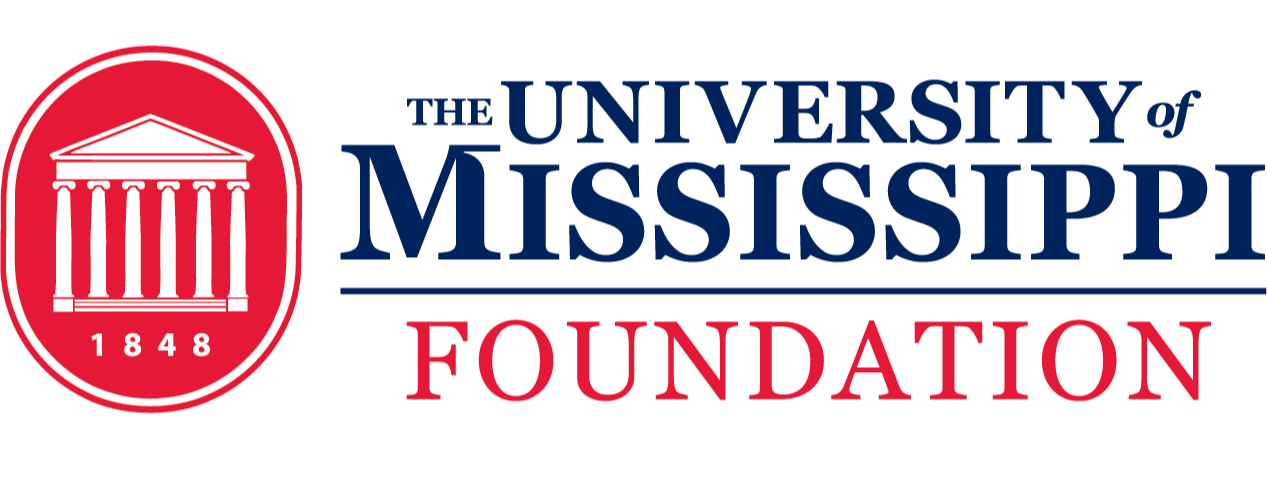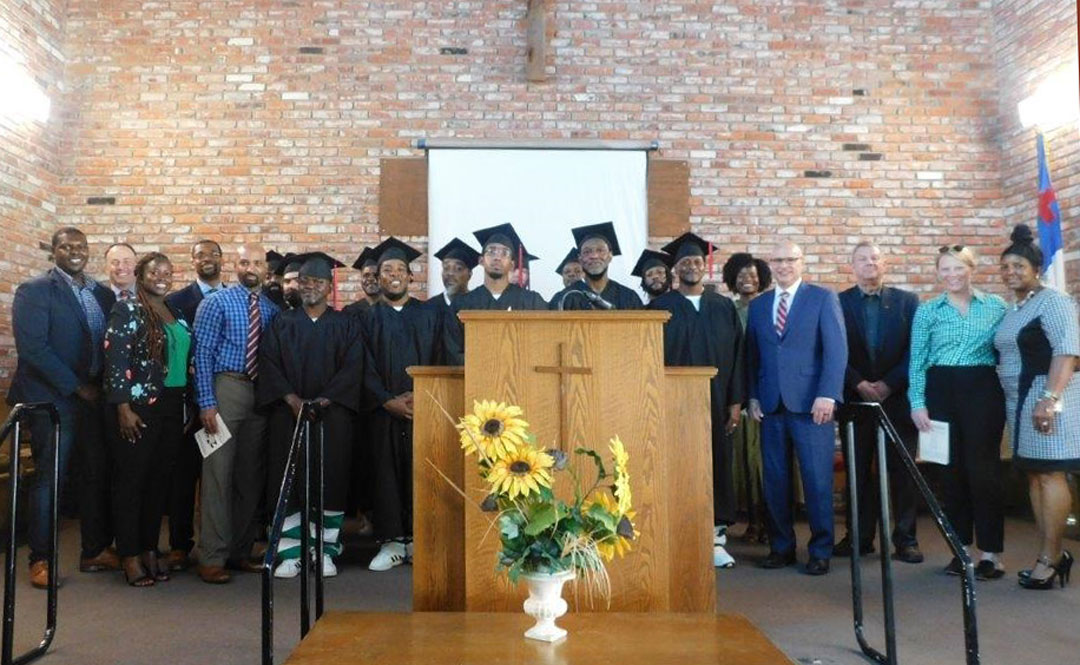A $150,000 grant to the University of Mississippi’s Prison-to-College Pipeline Program (PTCPP) is helping expand course offerings and services to those looking to transform their lives during and after incarceration.
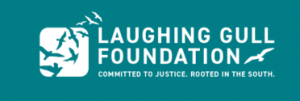 The Laughing Gull Foundation, a Durham, North Carolina foundation committed to justice issues in the South, awarded the grant to UM. The financial resources are supporting the program, which UM started in 2014. UM sends educators with humanities-based college-level curricula to teach men at the Mississippi State Penitentiary at Parchman in Sunflower County.
The Laughing Gull Foundation, a Durham, North Carolina foundation committed to justice issues in the South, awarded the grant to UM. The financial resources are supporting the program, which UM started in 2014. UM sends educators with humanities-based college-level curricula to teach men at the Mississippi State Penitentiary at Parchman in Sunflower County.
Patrick Alexander is the program’s director and a UM associate professor of English and African American Studies. He said the funds will support new program staff, aid with training professors and teaching assistants at Parchman, and provide other program support to those behind bars.
“These monies have moved us closer to realizing our dream to create a world where, if incarcerated students want to earn college degrees, they will be able to do so through our program,” Alexander said. “This funding from Laughing Gull has been a huge game changer for the PTCPP.”
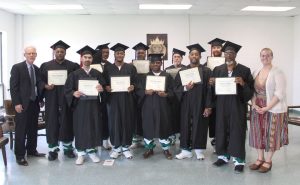
The program has helped more than 100 students so far. Almost half of the students are earning college credits, and a graduation ceremony is held for those who complete a course.
Dr. LaTonya Penny, chief executive, said the foundation is proud to support UM’s PTCPP.
“The program is aligned with our organization’s values as a student-centered opportunity for learning and transformation that’s focused on racial equity,” Penny said. “Our visits to the program’s classrooms made it clear that enrolled students are receiving a powerful and vibrant education.
“These students inspired us greatly. They were engaged with their lessons and coursework, and they are receiving wonderful instruction and encouragement from the program’s leaders who go above and beyond to ensure every student is supported.
“Students in the PTCPP are becoming empowered and unlocking their potential to change their lives,” she said.
Increased Access to Education
Developed in response to the high rates of incarceration and the need for increased access to educational opportunities, the PTCPP helps incarcerated students who have GEDs or high school diplomas pursue and attain college credit and college degrees.
The College of Liberal Arts supports students by providing books and supplies for each course and graduation caps and gowns for each ceremony. With the English and History departments, and the African American Studies Program, the CLA also funds compensation for PTCPP faculty and teaching assistants.
CLA Dean Lee Cohen has attended every graduation ceremony since the program was relaunched in 2022 following the Covid-19 pandemic.
UM Provost Noel Wilkin, who attended the summer 2022 ceremony, said students’ comments confirmed the program’s positive impact.
“Not one of the incarcerated students mentioned being grateful that the program simply ‘gave them something to do,’” Wilkin said.
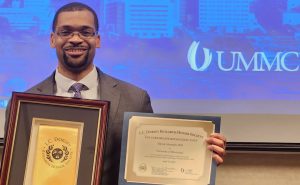
“Instead, they talked about how the program gave them confidence, how it opened their minds to different ways of thinking and being, how it enabled them ‘to steal away’ from their circumstances and situations, how it gave them hope for being able to offer something of value in conversations with their families and how it gave them motivation to make a difference once they leave prison.”
Impacting the Lives of Students, Professors
“The support from the Laughing Gull Foundation has elevated our program to a different level,” said Alexander, who co-founded the PTCPP with Otis Pickett, a UM alumnus, formerly a Mississippi College associate professor and now the Clemson University historian.
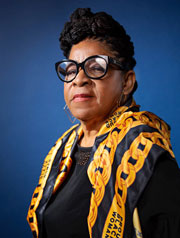
Recently, the funds were used to co-sponsor the first-ever speaker for the Dr. Jeannette Jennings Lecture Series. Susan Burton, the criminal justice reform movement leader and award-winning author, used a virtual platform to discuss her acclaimed memoir and hold a question-and-answer session with PTCPP students.
Alexander and other faculty members, such as Jay Watson and Adam Gussow, spend about a half-day per week teaching in the prison during a semester. Ann Fisher-Wirth, UM Professor Emerita of English, is teaching a PTCPP course this spring.
Gussow, professor of English and Southern Studies, said the semester spent exploring the blues literary tradition with incarcerated students was unlike any other teaching experience he has had.
“I will always be grateful to the 10 men in that class, and to Patrick for gifting me with the single most enlightening and transformative experience I’ve had as a professor.”
Watson, the Howry Professor of Faulkner Studies, described his semester working with incarcerated students as “the most challenging, humbling and gratifying experience” of his career.
“2022 was the first year students were allowed by MSP administration to graduate in something other than their prison stripes,” he said. “Everyone in the class had a high school diploma or GED, but I suspect that very few had walked through a commencement ceremony. That day was a big step forward for the program, and honestly, I think every one of them grew a couple of inches taller that day.”
More Members of PTCPP’s Team

Tracion Flood, who was formerly incarcerated, was hired as the new program manager. In addition to launching a newsletter that features the writing and artwork of incarcerated students, she supports students as an academic counselor.
Several UM students and former students, such as teaching assistant Morgan McComb, intern Anna Ruth Doddridge and research fellow Juyoun Jang, have been instrumental in the program’s success, Alexander said. In addition to the students, faculty, deans and administrators, other members of the PTCPP team include representatives of UM’s outreach, admissions, finance, registrar and bursar offices.
Mississippi Department of Corrections officials are also crucial to the program’s operations.
“We would not have had the success we’ve had without the help, participation and buy-in that we’ve received from all these team members,” Alexander said. “The University of Mississippi is very grateful for all the support they’ve provided and continue to provide. We also realize that as full-time faculty members, we have so many responsibilities and demands on our time that we needed this additional support from the Laughing Gull Foundation.”
The foundation provides funding to organizations across the South through three areas: higher education in prison, climate and environment, and LGBTQ+ equality. In 2023 alone, the foundation awarded nearly $6 million, including $1.9 million to 33 organizations supporting higher education in prisons.
The Prison-to-College Pipeline Program Fund is open to gifts from individuals and organizations by mailing a check to the University of Mississippi Foundation, with the fund’s name noted in the memo line, to 406 University Ave., Oxford, MS 38655; or visit https://give.olemiss.edu.
For more information, contact Katie Morrison, director of corporate and foundation relations, at katie@olemiss.edu or 662-915-2135.
By Jonathan Scott/UM Development
